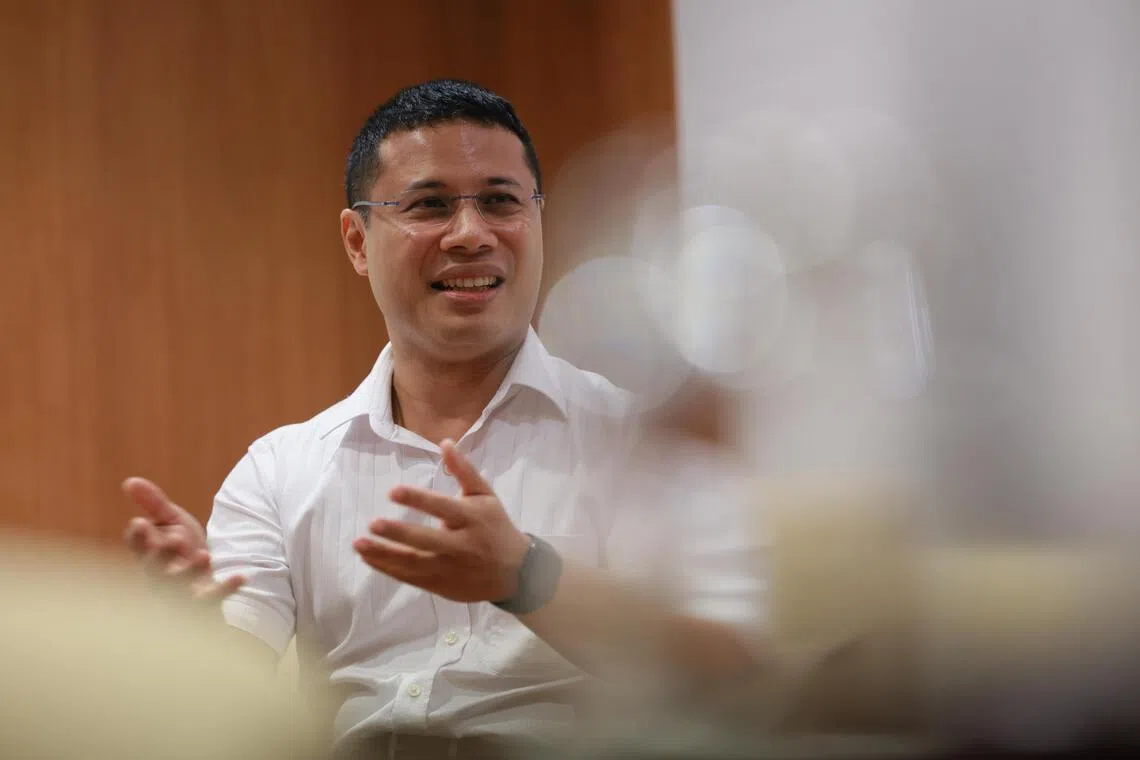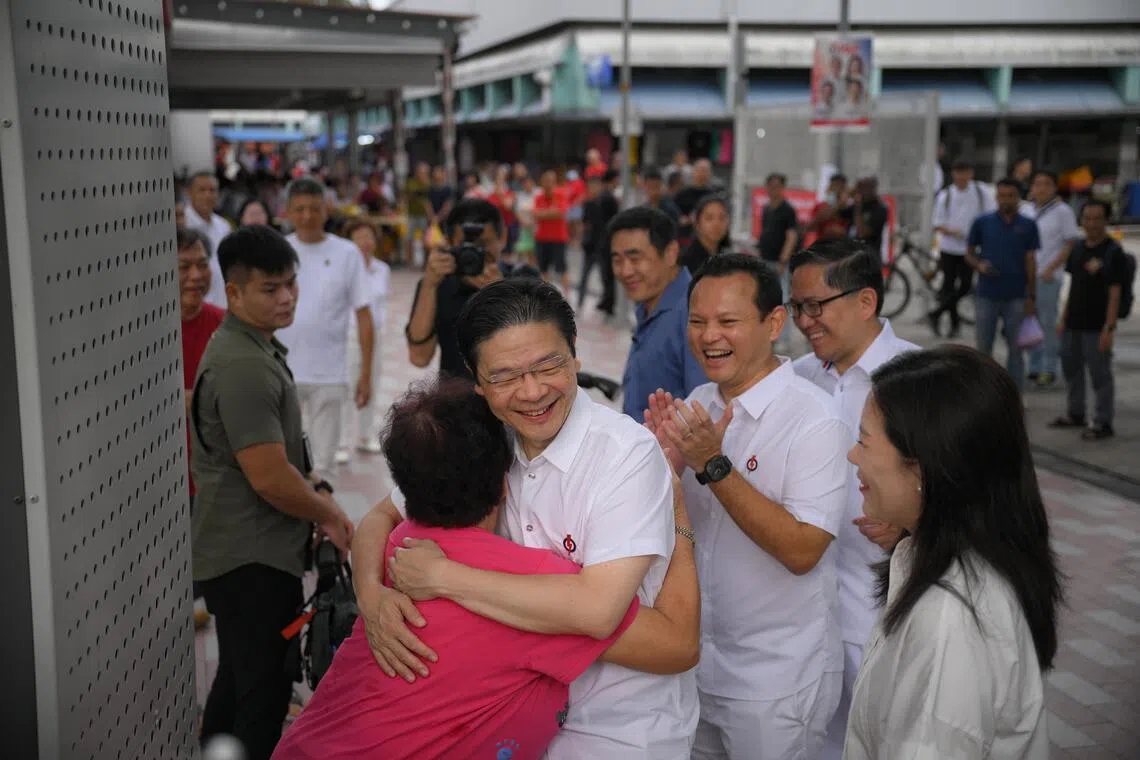PAP’s measured tone, PM Wong’s style of governance contributed to GE2025 swing: Desmond Lee
Sign up now: Get ST's newsletters delivered to your inbox

Education Minister Desmond Lee, who is PAP chairman, also cited voters' desire for a stable government as another factor.
ST PHOTO: GAVIN FOO
Follow topic:
- PAP's improved GE2025 showing was due to a measured tone during campaigning, a desire for stable government amid uncertainty, and confidence in PM Wong.
- PAP garnered broad demographic support, including six in ten young people, contrary to the impression that youth voted heavily for the opposition.
- The PAP will focus on wider engagement, improved communication, earlier candidate deployment, and continuing its preferred style of governance.
AI generated
SINGAPORE – The PAP took a measured tone during campaigning that voters were more comfortable with, and this contributed to its improved showing at the May general election, said party chairman Desmond Lee.
He also cited the electorate’s desire for a stable government at a time of significant uncertainty, and their vote of confidence in Prime Minister Lawrence Wong in his first general election at the helm of the ruling party.
“They wanted to have a strong, stable government that could work for Singaporeans externally. With the geopolitical tensions and shifts that are happening, we shouldn’t underestimate how important this is,” Mr Lee said.
The PAP increased its nationwide vote share from 61.24 per cent in 2020 to 65.57 per cent at GE2025
Mr Lee said the results were a nod to PM Wong’s personality and his team’s more open and consultative style of governance.
Mr Lee, who is Minister for Education, gave his take on the election in an interview on Sept 18 with The Straits Times and Chinese-language daily Lianhe Zaobao – his first remarks to the media as PAP chairman
Mr Lee was previously assistant secretary-general.
He noted that the People’s Action Party had garnered broad support across different demographics.
A recent survey by the Institute of Policy Studies that sought to understand the election results found that the PAP had support of at least 60 per cent among many of the major demographic groups – determined by age, gender, housing type and socio-economic status – said Mr Lee.
He also pointed out that six in 10 young people aged 21 to 39 chose the PAP – not far from the national average of 65 per cent.
This goes against the impression that young people voted more for the opposition, he said.
The PAP is grateful for the clear mandate and does not take it for granted, he said, adding that it will work harder to support and better serve Singaporeans.
He said that while some commentators have called the results a landslide victory, the party does not see it that way.
“It was a tough contest in almost all the constituencies. We came close to losing more seats, and we did not gain ground in WP-held wards, although we had sent a strong slate,” he said.
The Workers’ Party retained its seats in Aljunied GRC, Sengkang GRC and Hougang. It also gained two Non-Constituency MP seats for close contests in Jalan Kayu and Tampines GRC.
Mr Lee said the PAP has sent a message to activists, partners and networks that there is no room for complacency.
He identified three areas it will work on, including engaging more widely and communicating better with voters.
These include reaching out through social media and improving the ways in which the PAP explains politics and policies to Singaporeans.
Earlier deployment of candidates on the ground, in particular in opposition-held constituencies, is another area where the party could have done better.
Mr Lee highlighted the line-ups in Aljunied and Sengkang GRCs, which comprised mostly fresh faces, save for one member in each team.
“It’s always important to let the ground know who your candidates are, not just to know what the party stands for, but to let people have a good feel of the candidates who represent your party and your ethos, (and) give them time to get to know the residents and the stakeholders on the ground in the opposition-held wards,” he said.
The party will also continue its work in putting forth the style of governance and politics the electorate has shown a preference for, he added.
It will focus on the issues and needs of Singaporeans, and show Singaporeans that the PAP has carried through on its promises.

Prime Minister Lawrence Wong receiving a hug from a resident after the GE2025 results in May, which some called a landslide victory for the PAP.
ST PHOTO: MARK CHEONG
These include the Forward Singapore agenda, and the plans announced over the past week in the addenda to the President’s Address.
The address on Sept 5, delivered by President Tharman Shanmugaratnam
Asked whether the strong mandate would give the PAP government more confidence in pushing out unpopular but necessary policies, Mr Lee said the party always reminds itself that it is here to govern, and “not simply to be popular and to win votes”.
He recalled his first election in 2011, when the PAP lost a GRC for the first time. Then WP chief Low Thia Khiang had led a team to contest Aljunied, where they beat a PAP team that included then Foreign Minister George Yeo and then new face Ong Ye Kung, now Health Minister.
After the hustings, the party conducted its usual after-action review, which Mr Lee was involved in.
“There were inevitably calls to say, ‘let’s not do too many of the hard things’. Some may even (have called) for doing more popular things,” he said.
As the PAP confronted the result, there were voices “all around” saying the party should change its politics and policies. But then Prime Minister Lee Hsien Loong put a stop to those calls.
Then PM Lee said the PAP could improve its politics and the way it implemented policies, but the policies must always be for Singapore and Singaporeans, recalled Mr Desmond Lee.
This is a principle the party has held over the years. In many societies around the world, politicians may promise things just for political support, sometimes along demographic lines, which can lead to identity politics and divisive politics, he added.
But the PAP is focused on governing, which means taking a long-term view.
This sometimes means making decisions that might upset people or result in losing their support, but the party must continue to persuade Singaporeans and hone its ability to smooth rough edges in messaging and implementation, said Mr Lee.
“Whatever the political outcome, if we have the mandate to govern, we must do our best to take the long-term view.”


